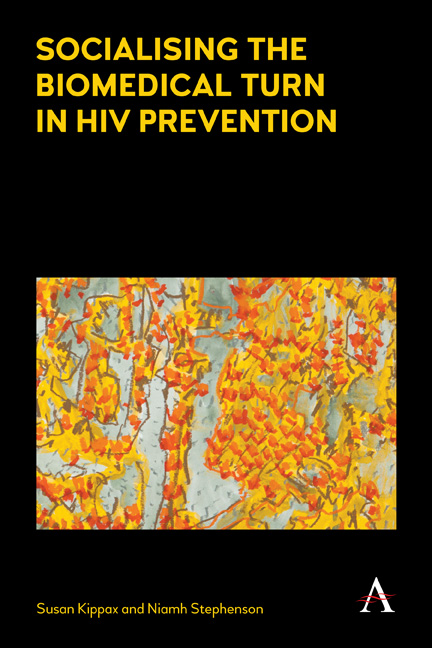Book contents
- Frontmatter
- Dedication
- Contents
- List of Figures
- List of Tables
- Acknowledgements
- Introduction
- Part I EFFECTIVE HIV PREVENTION
- Part II SOCIAL TRANSFORMATION
- 4 The Biomedical Narrative of HIV/AIDS
- 5 Risk and Vulnerability
- 6 Social Practices of Communities
- 7 Researching Social Change, Working with Contingency
- Notes
- References
- Index
5 - Risk and Vulnerability
from Part II - SOCIAL TRANSFORMATION
Published online by Cambridge University Press: 17 June 2017
- Frontmatter
- Dedication
- Contents
- List of Figures
- List of Tables
- Acknowledgements
- Introduction
- Part I EFFECTIVE HIV PREVENTION
- Part II SOCIAL TRANSFORMATION
- 4 The Biomedical Narrative of HIV/AIDS
- 5 Risk and Vulnerability
- 6 Social Practices of Communities
- 7 Researching Social Change, Working with Contingency
- Notes
- References
- Index
Summary
Reviewing the history of HIV as it is sketched in the Joint United Nations Programme on HIV/AIDS (UNAIDS) Timeline in a little more detail is instructive. The young men in the United States who were dying in 1981 and 1982 were dying of rare illnesses that typically, in earlier years, had been effectively dealt with by the immune system. Gay men, mostly well-educated and socially upwardly mobile men, were dying of an unusual form of pneumonia and developing unusual cancers. Some in biomedicine believed that the poor immune response was related in some way to these young men's lifestyles: hence, the naming of the syndrome as the gay-related immune deficiency response, or GRID, or more nastily, the ‘gay plague’. Although identified later, at around the same time, large numbers of people who injected drugs were also affected by and began to die of the same illnesses. Their deaths were also attributed to a notion of ‘poor immune response’ and, by extension, their lifestyles.
In one sense, the concerned clinicians and biomedical scientists were correct: the observed patterns of illness and the deaths were an indirect result of a poor immune system and the ‘poor immune system’ was, as they argued, a function of lifestyle. However, what was not understood at the time was that the poor immune system was a result of infection transmitted by a bloodborne virus via sexual and injecting practices, and ‘lifestyle’ was undefined. It was the specific social practices of gay men and of people who inject drugs – engaging in sex with each other and sharing of needles and injection equipment – that placed them at risk of HIV. Although the reference to lifestyles pointed in the right direction, it failed to find any purchase on the cultural and social practices of particular groups, communities or networks. Instead, early biomedical interest into the lifestyles associated with HIV was translated into researching individual behaviours.
In this chapter, we chart the early obscuring, by biomedicine, of the notion of social practice in the shift in the focus of HIV prevention from groups to individuals and their unsafe or risky behaviours. We also describe a more recent turn to ‘vulnerable populations’ rather than ‘risky individuals’.
- Type
- Chapter
- Information
- Socialising the Biomedical Turn in HIV Prevention , pp. 89 - 108Publisher: Anthem PressPrint publication year: 2016



